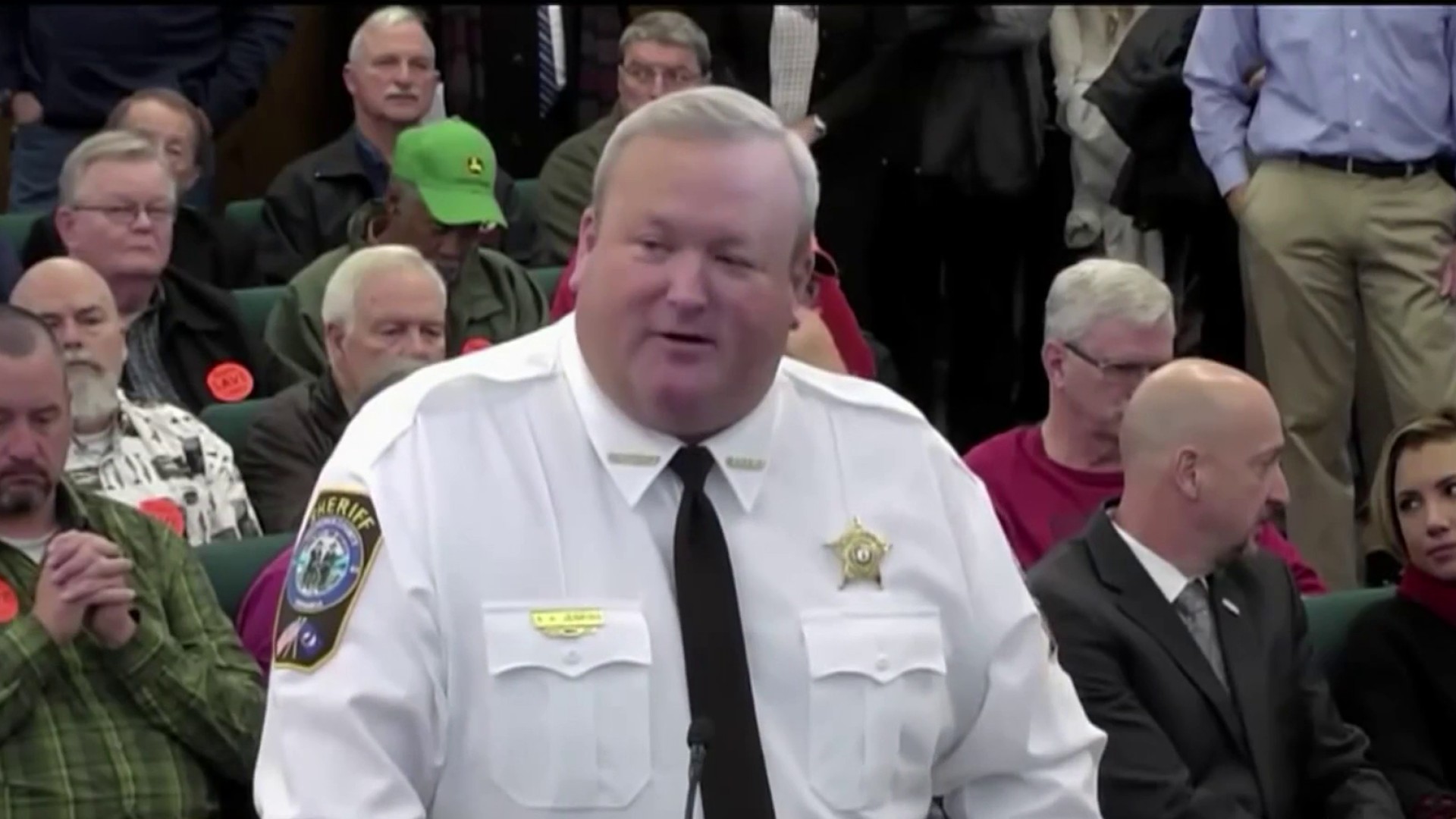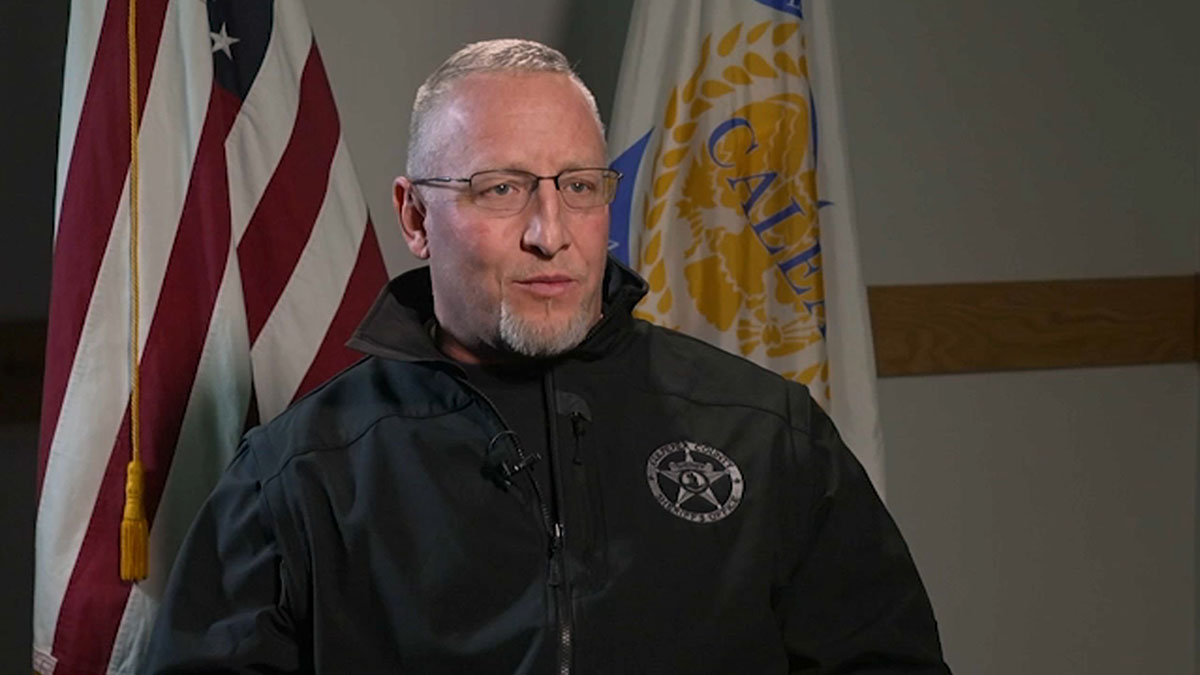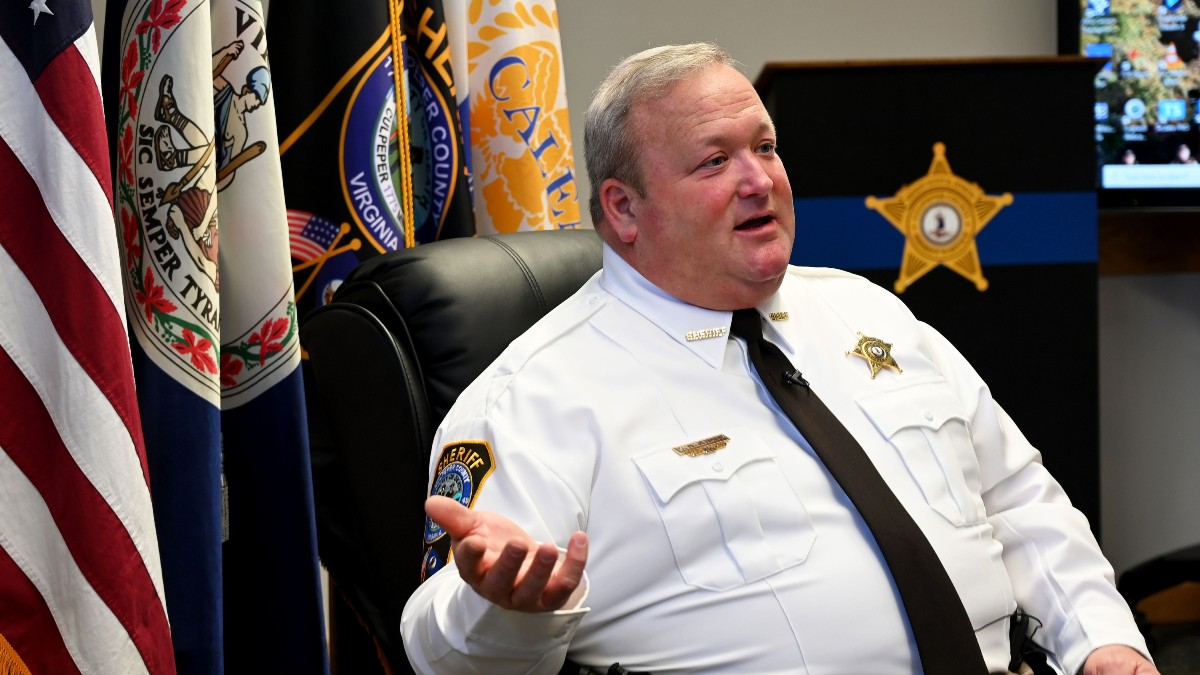Former Culpeper County Sheriff Scott Jenkins is expected to arrive at the federal courthouse in Charlottesville on Tuesday morning to face a trial that could land him in federal prison for years.
Jenkins has pleaded not guilty to conspiracy, fraud and bribery charges. His three co-defendants have all pleaded guilty and are expected to testify.
Undercover FBI agents who said they gave Jenkins bribes are expected to testify. Unindicted businesspeople who prosecutors claim gave Jenkins money also are expected to testify.
In 2023, federal judges allowed the government to tap the phones of people related to the alleged payments, and court records show a confidential informant recorded hours of audio and video of some of the transactions. All of that awaits Jenkins inside the courthouse.
Neither Jenkins nor his lawyer have replied to repeated questions from the I-Team about the case and the allegations.
Jenkins’ lawyers claim he’s the victim, invoke Trump
On Nov. 6, Jenkins’ lawyers posted a statement on an internet fundraising site for his legal defense.
“Scott needs your help now more than ever! Trial begins next week and we're in the fight of our lives. Don't let Scott become another victim of liberal political prosecution,” they said.
The next day, the lawyers posted: “We’ve seen how political operatives have treated Donald Trump and those close to him, like Scott. Many in Trump’s orbit have been charged with crimes or have had their lives and reputations ruined by leaks and accusations from a weaponized Biden DOJ. These people lose everything fighting for their lives against the full weight and power of a weaponized federal government. Sadly, Scott Jenkins is now one of these victims.”
Jenkins first attracted national attention in late 2019, as the Virginia General Assembly was considering changes to the commonwealth’s gun laws. At the time, Jenkins repeatedly said he would deputize thousands of auxiliary deputies to circumvent any possible new Virginia firearms restrictions.
Jenkins ran the Culpeper County Sheriff’s Office for more than a decade, from 2012 to 2023. Federal prosecutors said for many of those years, he was giving auxiliary deputy badges to people who paid him thousands of dollars in checks and cash. The feds said the alleged payments were bribes.
A federal indictment and the supporting documents allege Jenkins took more than $70,000 in bribes. Prosecutors said some of the money was deposited in Jenkins’ campaign accounts, while much of it was deposited directly into his personal accounts.
Court records filed in final preparation for the trial allege “the origins of the bribery scheme” go all the way back to 2011, when Jenkins was first running for office. A donor to that campaign gave $5,000 and was later sworn in as auxiliary deputy in 2012, according to records. Jenkins is not charged with any crime connected to that payment, but the same court records allege Jenkins and that donor worked since 2015 to find other “wealthy Northern Virginia businessmen who wanted to be sworn as auxiliary deputies in exchange for campaign contributions.”
In text message conversations, Jenkins and someone listed in court records as Individual 1 referred to Individual 1’s recruits as “money guys.” The “money guys” were motivated to purchase sheriff’s badges primarily because Jenkins and Individual 1 told them that the badges gave them authority to carry a concealed weapon in all 50 states without obtaining a concealed carry permit.
In addition, according to a preview of the trial filed by prosecutors, Jenkins and Individual 1 allegedly told the “money guys” if they were pulled over by law enforcement while driving, they could show their badges and credentials to request “professional courtesy” and avoid a ticket.
In court records, prosecutors tell the court, “At trial, the government intends to offer evidence that, dating back to at least 2015, Jenkins accepted campaign contributions from Northern Virginia businessmen recruited by Individual 1 in exchange for auxiliary deputy badges.”
The investigation begins
In June 2022, court records indicate the FBI signed up “Individual 1,” a “confidential human source.” As part of his cooperation, he “agreed to arrange meetings between Jenkins and prospective bribe payors at the direction of the FBI, and to record those meetings using hidden audio and video recording devices.”
Those recordings are expected to be part of the trial. A timeline of alleged bribes shows Jenkins allegedly accepting payments from two businessmen and two undercover FBI agents after the informant agreed to record meetings.
The investigation becomes public
The News4 I-Team first learned of the investigation into then-Sheriff Scott Jenkins in April 2023 when the FBI filed a notice it had seized $10,000 from Jenkins’ campaign account on Jan. 31, 2023. A few weeks earlier, the I-Team learned several Culpeper County employees had been subpoenaed to offer testimony to a federal grand jury.
The I-Team learned of a large number of auxiliary deputies appointed by Jenkins. In searches of Culpeper County court records, the I-Team found 46 auxiliary deputies appointed by Jenkins and sworn in by a circuit court judge. That is more than double the number of auxiliary deputies authorized by a Culpeper County ordinance that says auxiliary deputies are “not to exceed fifteen (15) percent of the paid force.”
The number of deputies is far from the only question the I-Team has about the program. According to the sheriff’s own general order, auxiliary deputies are supposed to be trained. According to the results of a Virginia Freedom of Information Act request, the Virginia Department of Criminal Justice Services only has training records for three of the 46 auxiliaries. There was no evidence background checks were conducted. Rick Rahim, one of the auxiliary deputies, had felony convictions in his past.
Jenkins and three co-defendants were indicted on June 28, 2023. All three co-defendants have since pleaded guilty.
Feds offer explanation for alleged bribes
Jenkins has never talked about the payments; his lawyers have not either. But prosecutors lay out a possible motive for Jenkins to accept the money: In a motion filed to preview the trial, prosecutors allege Jenkins couldn’t afford his lifestyle.
Prosecutors promise an FBI agent will explain on the stand that, “Jenkins was overextended financially, thus demonstrating the need for him to solicit and accept the bribes.”
Reported by Ted Oberg, produced by Rick Yarborough, shot and edited by Jeff Piper




